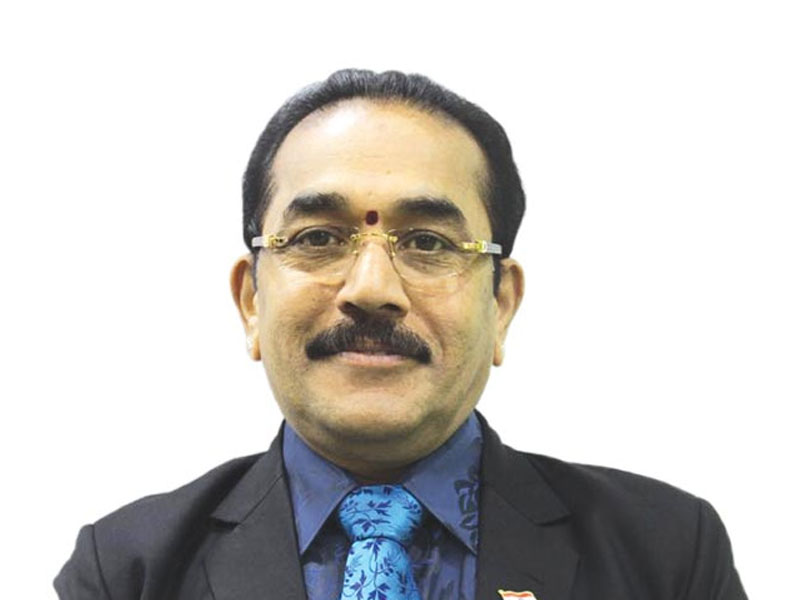DM Sheregar, CEO, Devu Tools Pvt. Ltd.
“COVID-19 has changed the way workplaces function” “I think it’s helping companies realise how to work efficiently with limited manpower. So, operating with limited staff is most likely to be the new normal after COVID-19,” says DM Sheregar, CEO, Devu Tools Pvt. Ltd.
Q. What challenges are tool makers facing during the COVID-19 pandemic?
The pandemic has put most industries in a very challenging position and tool makers have just been trying to survive. With the operations in the manufacturing industry coming to a standstill as a result of the lockdown, it has led to a loss in production. Besides, companies continue to pay salaries to their employees without getting much support from the government. In fact, monthly wages are the second highest expenditure for the tools industry after raw materials. Companies continue to incur fixed expenditure, such as interest on term loan, interest on working capital on existing borrowings, power (fixed expenses for HT), rent, security, etc., without having production in place. Besides job shops are facing a scarcity of workers, as their skilled staff comprising machine operators, and supervisors, among others, have returned to their native place because of the pandemic. As a result, manufacturing operations are being carried out at 30-40% of the installed capacity. The rate of interest on term loans and working capital limits are not reduced by the banks in line with reduction of Repo rate by the Reserve Bank of India. Due to this, the industry continues to bear high interest rates of 10-11% charged by banks, which otherwise would have been 9%. This is taking a toll on the industry.
Q. In this uncertain time, what measures have you adopted to keep your team productive?
As the saying goes, ‘Time is money’. We have been trying our best to be as productive as possible during this period. For instance, we have tried to incorporate effective use of manpower by assigning the charge of two machines to a single operator. We have been training operators to help them transition from conventional to non-conventional ways of functioning. This training will help in the effective utilisation of automated machines. Besides this, we have in place transportation facility to get our workers to the workplace and back. We have also set up a canteen for them.
Q. What will manufacturing’s new normal be after COVID-19?
COVID-19 has changed the way workplaces function. I think it’s helping companies realise how to work efficiently with limited manpower. So, operating with limited staff is most likely to be the new normal after COVID-19.
Q. What policy changes or support do MSMEs need in such a challenging time in order to revive?
This challenging time has put MSMEs in a very difficult spot and a few policy changes will certainly help. I would like to suggest a reduction in the interest rate across all banks, including cooperative banks, in line with the reduction by the Reserve Bank of India, by 1.5-2%, as I think it will be beneficial. The Reserve Bank of India should defer the term loan up to March 31, 2021, instead of the present duration of six months. The Government of India should offer support in the form of incentives, especially to small or mid-size companies having a turnover of up to ` 150 crores. For instance, they could offer a 25-50% refund in the form of Goods and Services Tax (GST) credit for the GST paid during FY2020. They should chip in towards making payments to the employer’s Provident Fund
(PF) contribution. They could, in fact, waiver the PF contribution of the employer and employee for a period of 9-12 months to manage the expenses incurred during the lockdown period. A subsidy of 5% on the interest charged for a period of 12 months on term loan taken towards expansion in anticipation of growing demand could really help. A 50% salary reimbursement by the government to the employer and reduction in overtime wage rates for a period of 18-24 months would really help us.
This interview was first published in TAGMA Times newsletter


